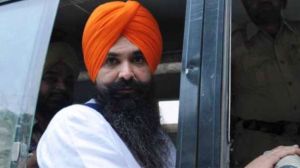Drama ends with death of Japan’s comatose former premier
TOKYO, MAY 14: Japan's former Prime Minister Keizo Obuchi died today while lying in a coma in hospital, closing a tragic drama that grippe...

TOKYO, MAY 14: Japan’s former Prime Minister Keizo Obuchi died today while lying in a coma in hospital, closing a tragic drama that gripped the world. He was 62.
Since taking the leadership in July 1998, Obuchi had endured almost 21 months of criticism, never managing to shrug off one analyst’s criticism that he had "all the pizzazz of cold pizza".
As a prime minister, he was widely seen in Japan as likeable but lacking charisma, industrious but indecisive.
In the popularity polls, his government had dropped to an 11-month low of 36 per cent in the month before his stroke.
But Obuchi finally caught the hearts of Japan and millions of sympathisers around the world when he collapsed on April 2 and rapidly descended into a coma with brain damage.
Since then, he had survived in a Tokyo hospital on life support, his wife Chizuko at his bedside along with the former leader’s son and two daughters.
While in power, Obuchi won respect, if not love, for his ability to brush aside criticism, often turning it to his own advantage in the style of a martial arts master.
He was an expert in the Japanese self-defence discipline of aikido.
Decried as a "dull ox" for his uninspiring vision, Obuchi boasted instead of the ox’s strength and ability to fulfill its tasks.
In fact, some of his closest aides said he was a martyr to his own diligence.
They blamed the stroke on overwork in the last days, as the former prime minister battled to save the economy, deal with an erupting volcano and patch up his fractious ruling coalition.
Obuchi took the top job because he was a protege of powerful former prime minister Noboru Takeshita, the reputed king-maker in the Byzantine world of the long-ruling Liberal Democratic Party.
A quiet achiever as foreign minister before he won the leadership, he replaced stablemate Ryutaro Hashimoto following their Conservative Party’s severe setback in Senate elections.
"I am said to be very, very ordinary. I am said to be mild and good in nature," Obuchi said at that time. "But I want you to understand that I am a man who does what should be done."
His mission was "economic revival."
Credited with reversing his predecessor’s tight-fisted fiscal policy, he splashed out more than 40 trillion yen (377 billion dollars) on stimulus packages. But the former leader’s lavish spending programs also produced more than 38 trillion yen (362 billion dollars) of national debt in the fiscal year to last March.
"I am the world champion of debts," Obuchi once joked while the country wallowed with cumulative long-term debts expected to mount to 645 trillion yen.
Obuchi was also a Conservative, whose government in August 1999 enacted legislation enshrining as national symbols the rising sun flag and an imperial hymn.
In 1963, as a 26-year-old post-graduate student of Tokyo’s Waseda University, Obuchi had become the youngest MP when he took over his father’s seat in Gunma, North of Tokyo, after his death.
He won re-election 12 times to the House of Representatives, but before becoming foreign minister, he was best known as the man who announced the start of a new era after Emperor Hirohito’s death in 1989.
In his final days in power, the former prime minister was raring to host world leaders in late July at a G8 summit in the southern island of Okinawa.
That honour will now go to his successor, Yoshiro Mori, who was reportedly picked by a handful of his party cronies in a secret hotel meeting while Obuchi lay in hospital.
The old school dies hard.
Photos



- 01
- 02
- 03
- 04
- 05




























